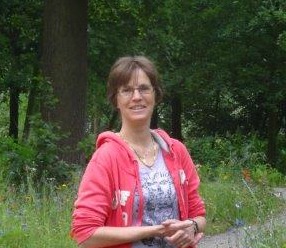Idelette Nutma

My name is Idelette Nutma, I live in Holland (was born in Alberta, Canada). I’m a married woman and mom of 3 daughters. I contracted the hantavirus in 2007, being on a holiday in Belgium, where certain rodents in certain regions carry the virus, the so called Pumalaa-kind.
Sepsis nearly killed me, but thank God I survived, thanks to the doctors and nurses in the ICU.
But I’m convinced that the support and prayer of my beloved family gave me the needed strength, not only during my critical illness but also during my recovery.
I got ill on April the 5th in 2007, and spent 5 days in ICU. A woman lying next to me, on the other side of the curtain, didn’t make it and after I woke up, she took her last breath. The border between life and death is incredibly thin and complex, especially when it comes to sepsis. I was somewhere between life and death during the time that my situation was critical: it was peaceful ‘up there’. Until today I treasure that feeling but it illustrates even more the contrast with the struggle my body and mind went through, dealing with sepsis in this reality.
To start with: sepsis is so sneaky; it strikes you like lightning, as it does your beloved ones. Often so little warning and viciously resembling a flu… Earlier that morning, before being admitted to the ICU, I had already been put on antibiotics. I tried to make sense of it all and so did my doctor. H ow come my condition was worsening all of a sudden? Eventually I was sent to the ICU.
In a few hours time, I had gone in to shock and developed ARDS (acute respiratory distress syndrome) and DIC (disseminated intravascular coagulation. (Sepsis and ARDS, Sepsis and DIC) It means your blood starts clotting and bleeding easily). No wonder that in bad cases DIC is explained as Death Is Coming. I fought…but eventually I got exhausted, so they had to put me on the ventilator. They gave me sedatives and then I fell ‘out of time’. My husband stayed overnight because my condition was really critical.
Thank God, I turned the corner, after having been ventilated for a few days. And I realize how lucky I am. But my recovery took me a long time, and there was no aftercare what so ever, no information on what to expect and how to cope. It was also hard on my husband and kids. This experience inspired me to bring all the information I could find on sepsis and recovery together, and write a book about it. Being a former nurse I was also very interested in sepsis because in many cases (escalation of) sepsis can be prevented. So I also wanted to raise the red flag on sepsis as an urgent matter, yet so very often underestimated and unrecognized. I sincerely hope my book will contribute to that. Moreover I want to draw attention to the ‘hidden faces’ of sepsis, the neurocognitive sequelae for instance, causing problems with short term memory, attention, mental processing speed, etc., making reintegration into employment very hard for many people. (Sepsis and Post-Sepsis Syndrome) had to quit my initial job myself. But I’ve learned to cope with it and I found new employment in educating, advising and coaching former patients, relatives and professionals regarding the aftereffects of sepsis and the importance of aftercare.
Indeed, sepsis has many faces and I feel very blessed being able to make my experiences useful to others, in particular because so many people can’t live to tell, they lost their lives, and others lost their loved ones due to this devastating illness. But in raising awareness on sepsis and providing a helpful guide for other survivors going through the same, I hope to give something back in return for my second chance.
If you are interested in my book or if you have any questions, take a look at: Sepsis and afterwards






























